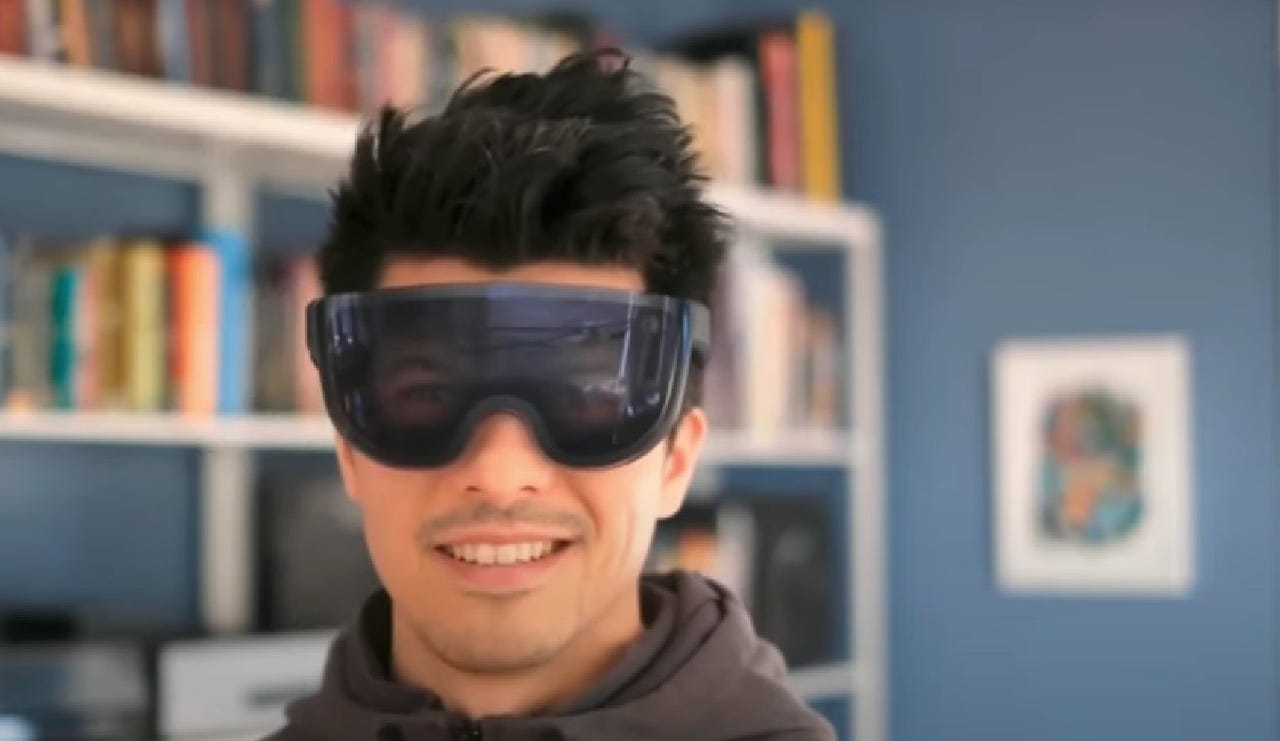
Late last year, Meta teased an advanced VR headset codenamed “Mirror Lake.” While details about this future headset are still pretty sparse, we do now at least have a picture of what it might look like in the form of a render — and a promise that it’s “practical to build now.”
Also: Meta has a secret VR headset that may have a key advantage over Apple’s Vision Pro
The new render was shown off by Douglas Lanman, Meta’s director of display systems research, as he was giving a talk called “How to Pass the Visual Turing Test in AR/VR” at The University of Arizona. And while the headset is honestly a little creepy at first glance, it promises some significant advancements.
What immediately catches your eye is how slim and open the headset is. Bulk and weight have been among the biggest complaints about VR headsets so far, but Meta’s Mirror Lake shows off a much smaller heft than anything before it.
The headset looks more like a pair of ski goggles than the VR headsets we’re used to (in the style of the Vision Pro from Apple, but smaller still), and the wearer’s face is not only visible from the side (meaning air can flow freely), but a reverse passthrough system displays an image of the wearer’s eyes on the front just as Apple’s EyeSight does on the Vision Pro.
A demo of Meta’s reverse passthrough system. Meta
Older VR headsets available used refractive optics, or lenses set at a distance apart (the biggest factor in a headset’s size), but the latest generation — including the Meta Quest 3 and Apple Vision Pro — use pancake lenses that shorten the optical path. Mirror Lake would take that even further by using what Meta calls “HoloCake” lenses. These lenses are much thinner than the ones seen in other headsets, and they have a full electronic varifocal system, meaning users can see clearly without prescription lenses.
Also: Meta’s $500 Quest 3 is the mainstream VR headset I’ve been waiting for, and it delivers
Of course, this is far from a functional device. It’s not even a device that’s in design or identified with a specific future product. But, it is a look at technology that’s apparently not just an idea but feasible. Commenting on the headset last year, Meta CEO Mark Zuckerberg said a product like this could be seen in the “second half of the decade.”























